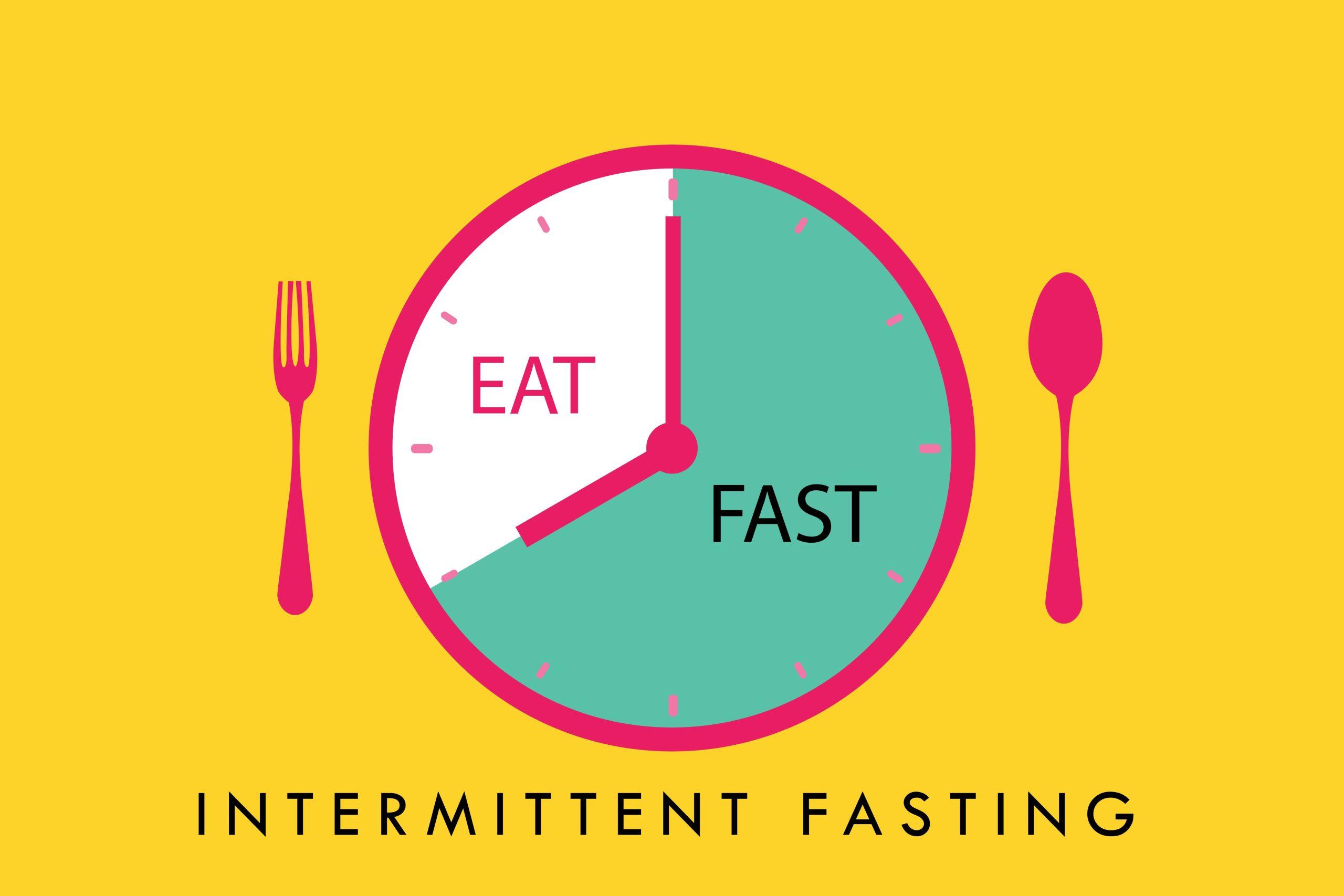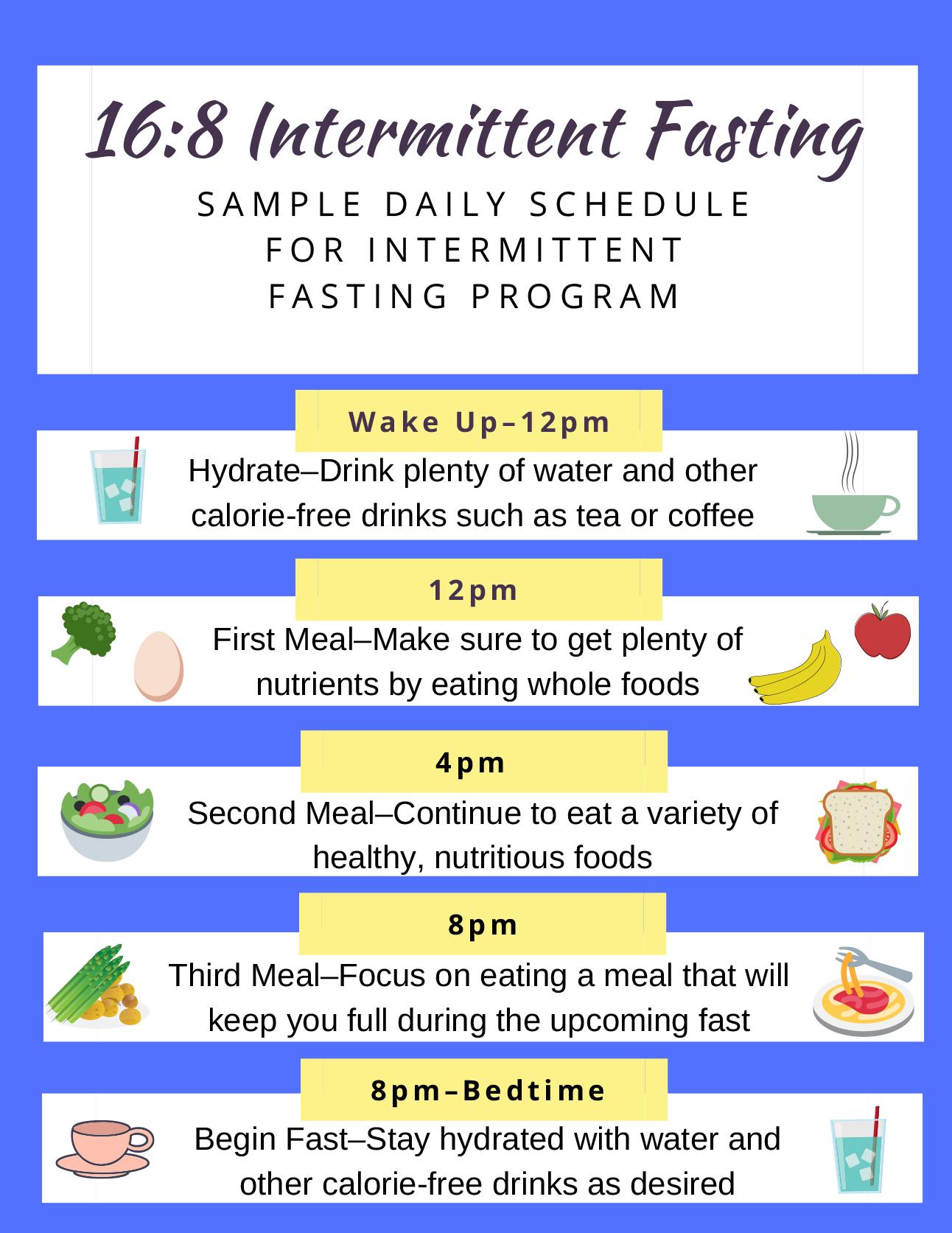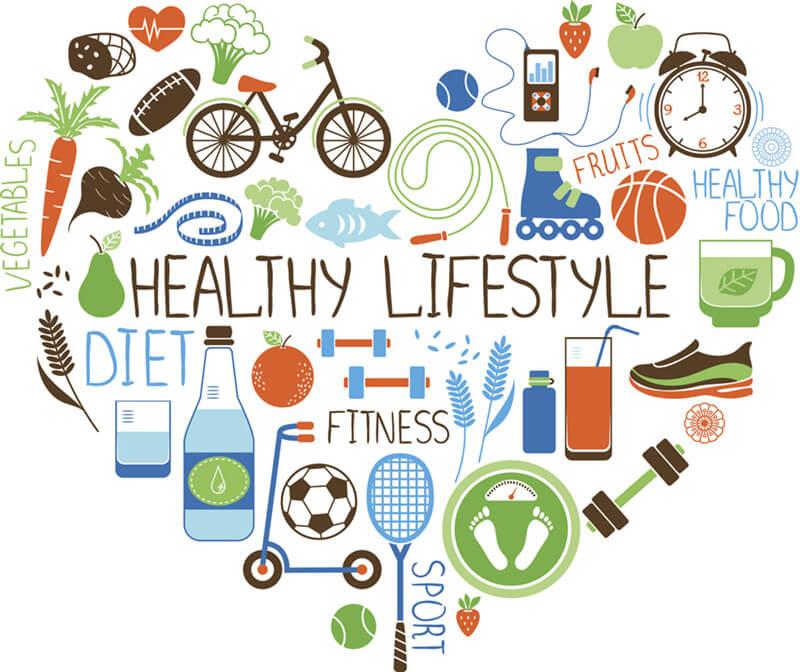In a world increasingly focused on wellness and holistic health, the buzzwords “fasting” and “detox diets” frequently dominate conversations about nutrition and lifestyle choices. While both practices claim to offer a pathway towards improved health and vitality, they often get tangled in a web of misconceptions and overlapping interpretations. Understanding the basic differences between fasting and detox diets is crucial for anyone looking to embark on a journey of dietary rejuvenation. In this article, we will unravel the intricacies of these two popular approaches, exploring what sets them apart, their respective benefits, and how each can potentially fit into a balanced lifestyle. Join us as we dive into the nuances of fasting and detoxification, empowering you to make informed decisions on your path to wellness.
Table of Contents
- Exploring the Fundamentals of Fasting and Detox Diets
- Evaluating the Health Benefits and Risks Associated with Each
- Practical Guide to Choosing the Right Approach for Your Lifestyle
- Nourishing Your Body: combining Fasting and Detox Principles Wisely
- Q&A
- In Summary
Exploring the Fundamentals of Fasting and Detox Diets
Fasting and detox diets are both popular practices aimed at improving health and vitality, yet they embody distinct philosophies and approaches. Fasting typically involves the voluntary abstention from food for a specified period, while detox diets focus on the elimination of toxins through certain food choices, often emphasizing whole foods, juices, or supplements. Understanding the primary differences is essential for choosing an approach that aligns with personal health goals.
At the heart of fasting is the principle of caloric restriction, which can lead to various physiological benefits, including improved metabolic health, weight loss, and enhanced mental clarity. There are various methods of fasting, such as intermittent fasting, water fasting, and prolonged fasting. Each method has its own set of rules and potential benefits, appealing to those looking to reset their eating habits.
Conversely, detox diets usually have a more nutritional focus. They aim to support the body’s natural detoxification processes by promoting specific foods believed to help cleanse the organs and tissues of harmful substances. Common detox practices include consuming high amounts of fruits and vegetables, herbs, and whole grains while restricting processed foods and potential allergens.This method tends to be more enduring in the long term for those seeking a gradual lifestyle change.
| Aspect | Fasting | Detox Diets |
|---|---|---|
| Purpose | caloric Restriction | Toxin Elimination |
| Duration | Hours to Days | Days to Weeks |
| Food type | Avoids Food | Whole Foods Focus |
| Benefits | Weight Loss, Metabolic Advancement | Enhanced Vitality, Digestive Health |
Evaluating the Health Benefits and Risks Associated with Each
When comparing fasting and detox diets, it’s essential to evaluate their respective health benefits and potential risks. Fasting, particularly intermittent fasting, has been praised for its ability to promote weight loss, enhance metabolic health, and even improve longevity. Research suggests that periods of fasting can lead to significant decreases in insulin levels and inflammation, often resulting in better blood sugar regulation. Additionally, fasting may stimulate autophagy, a cellular cleanup process that can mitigate the effects of age-related diseases.
On the other hand,detox diets often promise to eliminate toxins and provide a fresh start for the body. These diets usually involve a temporary shift to liquid-only consumption or the exclusion of certain food groups, and may come with potential benefits such as improved digestion and increased energy levels.However, the scientific backing for detox diets is less robust. Most benefits may stem from a temporary reduction in caloric intake rather than the detoxification aspect itself.It’s critical to recognize that the body has its own natural detoxification processes,primarily led by the liver,kidneys,and gastrointestinal system.
While the health benefits of both approaches may be appealing, certain risks accompany them. Fasting can potentially lead to nutrient deficiencies, fatigue, or mood swings, especially if not executed mindfully. Individuals with certain medical conditions, such as diabetes or eating disorders, should approach fasting with caution or seek medical advice beforehand. Similarly, detox diets can be restrictive and may cause electrolyte imbalances when prolonged or followed without balanced nutrition, which could result in adverse health effects.
In comparing the two methods, a clear understanding of personal health goals and individual response to dietary changes becomes crucial.as an example, someone seeking rapid weight loss might benefit from the structured approach of a detox diet, while those focusing on long-lasting lifestyle changes may find the adaptability of fasting more suitable. Ultimately, careful consideration of both benefits and risks will aid individuals in making informed choices that align with their health aspirations.
Practical Guide to Choosing the Right Approach for Your Lifestyle
When considering whether to incorporate fasting or detox diets into your lifestyle, it’s essential to evaluate several key factors. Each approach can yield different health benefits and might suit some individuals better than others. Here are a few elements to consider:
- Your Health Goals: Are you looking to lose weight, improve digestion, or enhance mental clarity? Defining your primary objectives will help direct your choice.
- Time Commitment: Fasting can vary in duration and intensity, while detox diets typically follow a structured, shorter time frame. Determine how much time you can realistically dedicate to each method.
- Personal Preferences: Some may find the idea of abstaining from food daunting, while others might enjoy creative cooking with detox diets. Think about what motivates you.
- Potential Side Effects: Both fasting and detox diets may cause temporary discomfort. Familiarize yourself with common reactions and how they align with your tolerance.
In addition to personal preferences and goals, understanding the fundamental differences in execution can help you make informed choices. Fasting generally focuses on periods of abstaining from food, which might include:
| Fasting Methods | Description |
|---|---|
| Intermittent Fasting | Cycles between eating and fasting periods, promoting metabolic efficiency. |
| Extended Fasting | Involves longer periods without food,often for detoxification or cellular repair. |
On the other hand,detox diets are typically laden with specific guidelines,emphasizing the consumption of certain foods while eliminating others. Characteristics of detox diets might include:
| Detox Diet Features | Description |
|---|---|
| Creative Recipes | Encourages variety and nutrient-dense foods, which may include juices or smoothies. |
| Short Duration | Generally lasts from a few days to a week, focusing on rapid cleansing. |
| Behavior Change | Frequently enough promotes lasting habits through a reset approach. |
Nourishing your Body: Combining Fasting and Detox Principles Wisely
nourishing your body while engaging in fasting or detox diets requires a thoughtful approach as both practices can complement each other when performed correctly. Fasting typically involves abstaining from food for a specific time period, allowing the body to focus on rest, repair, and healing. In contrast, detox diets emphasize the elimination of toxins by consuming specific foods, juices, or supplements intended to cleanse your system. Understanding how to merge these two approaches can lead to enhanced health benefits.
Incorporating elements of detox into your fasting routine can definitely help you maintain energy levels and ensure your body receives essential nutrients. Here are a few recommendations for combining these principles:
- Hydration is Key: During fasting, prioritize hydration with detoxifying beverages such as lemon water, herbal teas, or infused waters.
- Nutrient-Dense Foods: If your fasting plan allows for eating, focus on whole, plant-based foods that are rich in vitamins and antioxidants, like leafy greens, berries, and nuts.
- Gentle Detox: Rather of harsh detox methods, opt for gentle approaches like incorporating probiotic-rich foods or supplements to support gut health.
Timing also plays an essential role in successfully blending fasting and detox practices. For instance,some find benefit in implementing a detox day before starting a longer fasting period. This allows your body to clear out excess waste and prepares your system for a more extended fast. To visualize a simple plan:
| Day | Activity |
|---|---|
| Day 1 | Detox Day - Focus on light, whole foods and hydration. |
| Day 2-4 | Fasting Period – Limit food intake while staying hydrated with detox drinks. |
| Day 5 | Reintroduction Day - Gradually reintroduce whole foods that support your health. |
As you navigate this combined approach, listen to your body and adjust accordingly. It’s significant to ensure that you’re not depriving yourself, as both fasting and detoxing should promote wellness—never detract from it.Always consult with a healthcare professional before starting any fasting or detox program to ensure it aligns with your personal health goals.
Q&A
Fasting vs. Detox Diets: Understanding the Key Differences
Q: What exactly is fasting?
A: Fasting is the practice of abstaining from all or certain types of food and drink for a specified period of time. This can range from intermittent fasting—where eating is limited to specific hours each day—to prolonged fasts lasting several days. The primary focus is usually on giving the body a break from digestion and allowing it to reset or rejuvenate.Q: And what about detox diets? How do they differ from fasting?
A: Detox diets are more about cleansing the body of toxins, often through a specific regimen that may include juices, broths, or limited food options. Unlike fasting, which primarily restricts food intake, detox diets typically involve consuming certain foods or drinks believed to support the body’s natural detoxification pathways. The goal is to eliminate harmful substances, though the scientific backing of this practice can vary.
Q: Are there supposed health benefits to fasting?
A: Many people report benefits such as improved focus, weight loss, and even potential longevity when practicing fasting. Some studies suggest that fasting can yield metabolic benefits, like improved insulin sensitivity. However,scientific research is still ongoing,and results may vary depending on the individual and how the fast is implemented.
Q: What health benefits are attributed to detox diets?
A: Proponents of detox diets claim a range of benefits, such as enhanced digestion, clearer skin, and increased energy levels. The idea is that by reducing processed foods and introducing nutrient-rich, whole foods or juices, the body can function more optimally. Though, it’s critically important to note that many detox claims lack strong scientific evidence, and the body naturally detoxifies itself through organs like the liver and kidneys.
Q: Can fasting and detox diets be practised simultaneously?
A: While some people may combine elements of both fasting and detox diets—such as using a juicing detox during a fasting period—it’s essential to approach this carefully. Both practices have different physiological effects, and combining them should be done with consideration of your body’s needs and possibly under the guidance of a healthcare professional.Q: Are there any risks associated with fasting or detox diets?
A: Yes, both practices can carry risks. Fasting may lead to issues like nutrient deficiencies, electrolyte imbalances, or feelings of fatigue, especially if extended. Detox diets can also cause similar deficiencies if they restrict crucial nutrients for too long. It’s vital to listen to your body and consult a healthcare provider before starting either regimen, especially for those with underlying health conditions or specific dietary needs.
Q: Who should consider fasting or detox diets?
A: Individuals interested in trying fasting or detox diets often include those looking to reset their eating habits, enhance wellness, or manage specific health goals. Though, they are not suitable for everyone. Pregnant or nursing women, individuals with eating disorders, or those with chronic health issues should approach these practices with caution and professional advice.
Q: what is the most significant difference between fasting and detox diets?
A: The core difference lies in their approach and intention.Fasting focuses on abstaining from food to allow the body a break or reset, while detox diets involve sourcing particular foods or drinks to purportedly cleanse the body. Each has its beliefs, benefits, and potential downsides, making it important to choose the path that aligns with your health goals and lifestyle.
In summary
In the grand tapestry of health and wellness, fasting and detox diets each weave their own intricate patterns. While both approaches might promise rejuvenation and improved vitality, understanding their unique characteristics is essential for making informed choices that align with your individual health goals. As we’ve explored, fasting invites a temporary reprieve from regular eating, encouraging the body to reset and recharge, while detox diets emphasize the elimination of toxins through specific food choices and cleansing protocols.
ultimately, the right path for you may depend on various factors, including your lifestyle, health conditions, and personal preferences. As you embark on your journey towards better well-being, remember that knowledge is your most powerful ally. Whether you choose the rhythmic embrace of fasting or the clean slate of a detox diet, approaching your decision with clarity will empower you to cultivate a nourishing relationship with your body. So, savor the insights gained here, and step forward with confidence into your wellness journey—whatever form it may take.




